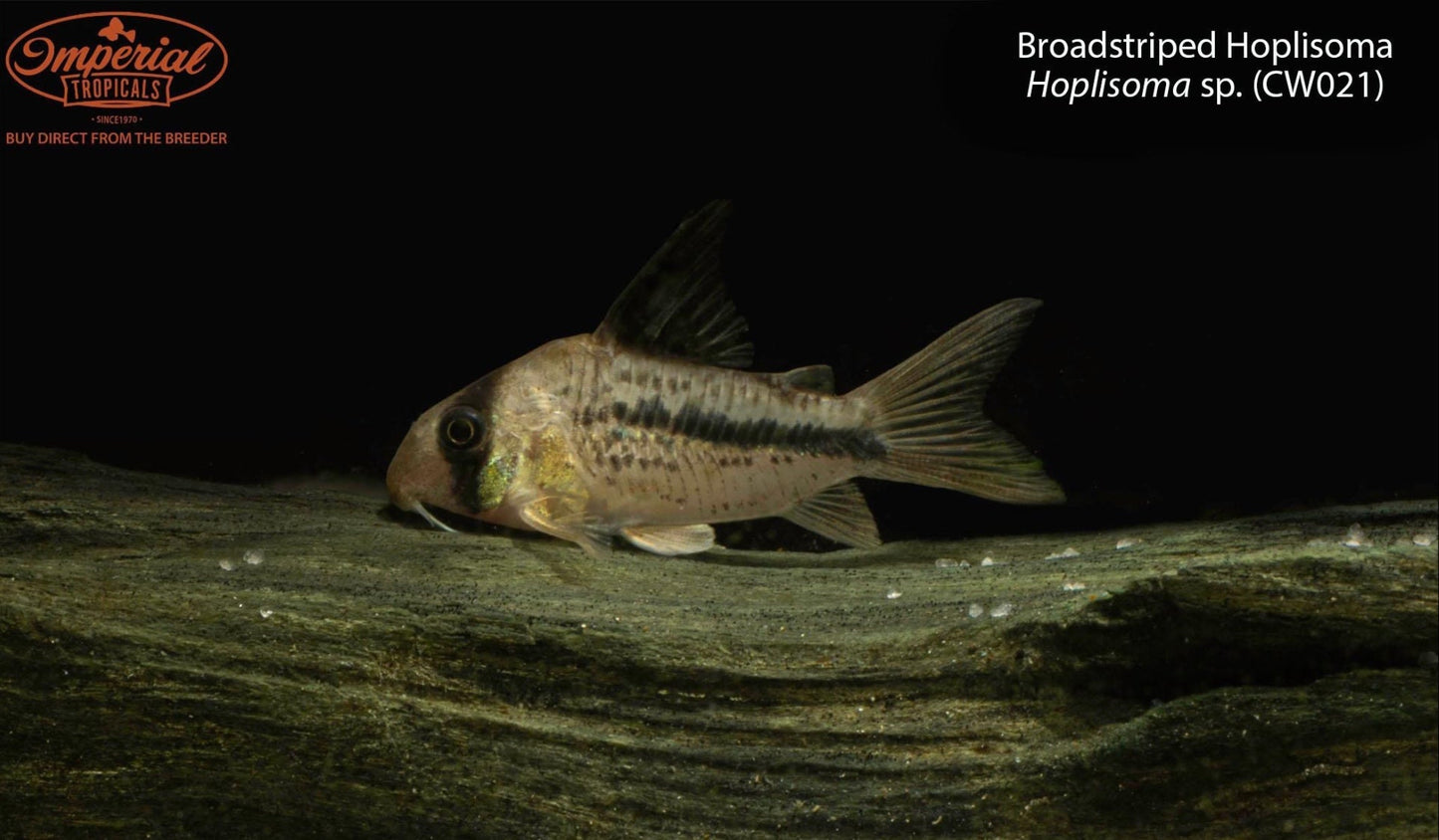Imperial Tropicals
Broadstriped Hoplisoma
Broadstriped Hoplisoma
Couldn't load pickup availability
Remarks: We originally brought these fish in as Hoplisoma bondi, but through the assistance of the renowned photographer, explorer, author, and aquarist Hans-Georg Evers have determined them along with some fish we imported in the past as Deckeri Hoplisoma (Hoplisoma sp. C3), to be Hoplisoma sp. (CW021), also known as the broadstriped hoplisoma. The broadstriped hoplisoma are thought to be a color form of Hoplisoma axelrodi, but as of the writing of this listing they are still considered to be separate enough to not share their scientific name. These fish have a whitish silver to tan colored body and can be identified by their black speckles, mask, and horizontal band on their back and lateral line. There is some variation in regards to their pattern so it is unlikely that all the fish you will receive will look the same.
Broadstriped hoplisoma were previously classified as Corydoras sp. (CW021), but were reclassified as Hoplisoma sp. (CW021) upon publication of a phylogenomic analysis in 2024 that reclassified many species in the Corydoradinae subfamily.
Corydoradinae are small, peaceful catfish that are active shoalers and will stay near conspecifics, making for a lovely sight. They feed by searching through sand with their barbels, making such a substrate necessary for their long-term health. Gravel substrates tend to be abrasive and damage the barbels, leading to infections and an inability to find food.
While these friendly catfish are willing to swim with other species of Corydoradinae different from their own, this does not provide the same social need as being kept with members of their own species. Because of this, it is highly recommended to keep at least six of each species of Corydoradinae present in the aquarium and only mix species if one has the space to keep at least six of each.
Corydoradinae are often looked at as "scavengers," but they should be treated in a similar fashion as the rest of your fish. They are omnivores and require a mixed diet. Sinking prepared foods are readily accepted, as are frozen and live foods such as brine shrimp, blackworms, and bloodworms.

